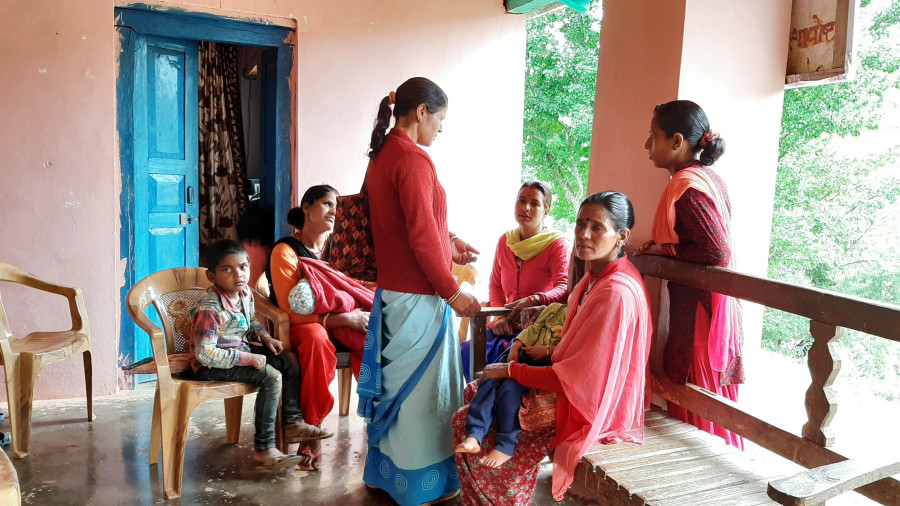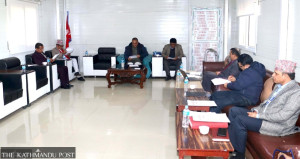Sudurpaschim Province
Postpartum mothers in Joshibunga carry the weight of old traditions
In many parts of Nepal, new mothers are considered “untouchable” until the eleventh day of delivery.
Tripti Shahi
Pinky Rana, from Joshibunga in Dasharath Chand Municipality, gave birth to her son five years ago and to a daughter five months ago in the local Health Post in Joshibunga.
But in both instances, she carried home her newborns and belongings herself. Because her husband, a schoolteacher, wouldn’t touch her. This is because in many areas in Nepal, new mothers are considered “untouchable” until the eleventh day of delivery.
“I was deeply hurt when my own husband shied away from touching me,” Rana said. “In the hospital, I was taken care of by the nurses and staff, and it was all right. But once home, everyone abstained from touching me. Post pregnancy is a difficult time for a woman, both in terms of physical health and mental well-being, and being shunned by family members during this crucial time did not help heal my already paining body.”
Post her newborns’ birth, until she’s “purified” on the 11th day, Rana had to walk a long distance to a river to take a bath and wash her clothes every day, without anybody’s help. “It is physically and mentally tiring,” said Rana.
Pushpa Mahar of the same village, who gave birth to her baby a month ago, went through a similar ordeal.
“When you give birth to a baby girl, you are deemed impure for nine days; if you give birth to a baby boy, you are deemed impure for 11,” Mahar said. “Travelling from the health post to home carrying all your belongings and the baby was unspeakably troublesome.”
Sunita Chaudhary, health assistant in charge at the health post, said that the same people who carry the pregnant women to the post abstain from touching them once the women give birth. “It’s confounding,” said Chaudhary. “We have tried to counsel the family members many times but they just aren’t willing to change their mind. We, too, are compelled to watch them in quiet resignation.”
In-charge of the health post, Hemanta Singh Saud, said that this tradition has led to the presence of several ailments in postpartum mothers.
“When a fresh mother is compelled to travel long distances shortly after she gives birth, it obviously leads to several complications,” Saud said, “Their post surgical health could take a turn for the worse.”
The village elders the Post talked to said that touching a woman in the ensuing two weeks of her delivery angers the gods and their kul devta—the deity of their clan.
“Touching the women after her delivery will make her ill because of god's wrath,” said Suna Rana, a local elderly. “And those who eat food touched by the postpartum mother will get sick as well.”
Ramesh Ram Rana, a local school teacher, echoes Suna.
“This is our tradition, practiced since ages,” Ramesh Ram said. “We can’t just break the tradition that our ancestors started. We, as social beings, need to be governed by society’s norms.”
***
What do you think?
Dear reader, we’d like to hear from you. We regularly publish letters to the editor on contemporary issues or direct responses to something the Post has recently published. Please send your letters to [email protected] with "Letter to the Editor" in the subject line. Please include your name, location, and a contact address so one of our editors can reach out to you.




 11.12°C Kathmandu
11.12°C Kathmandu















